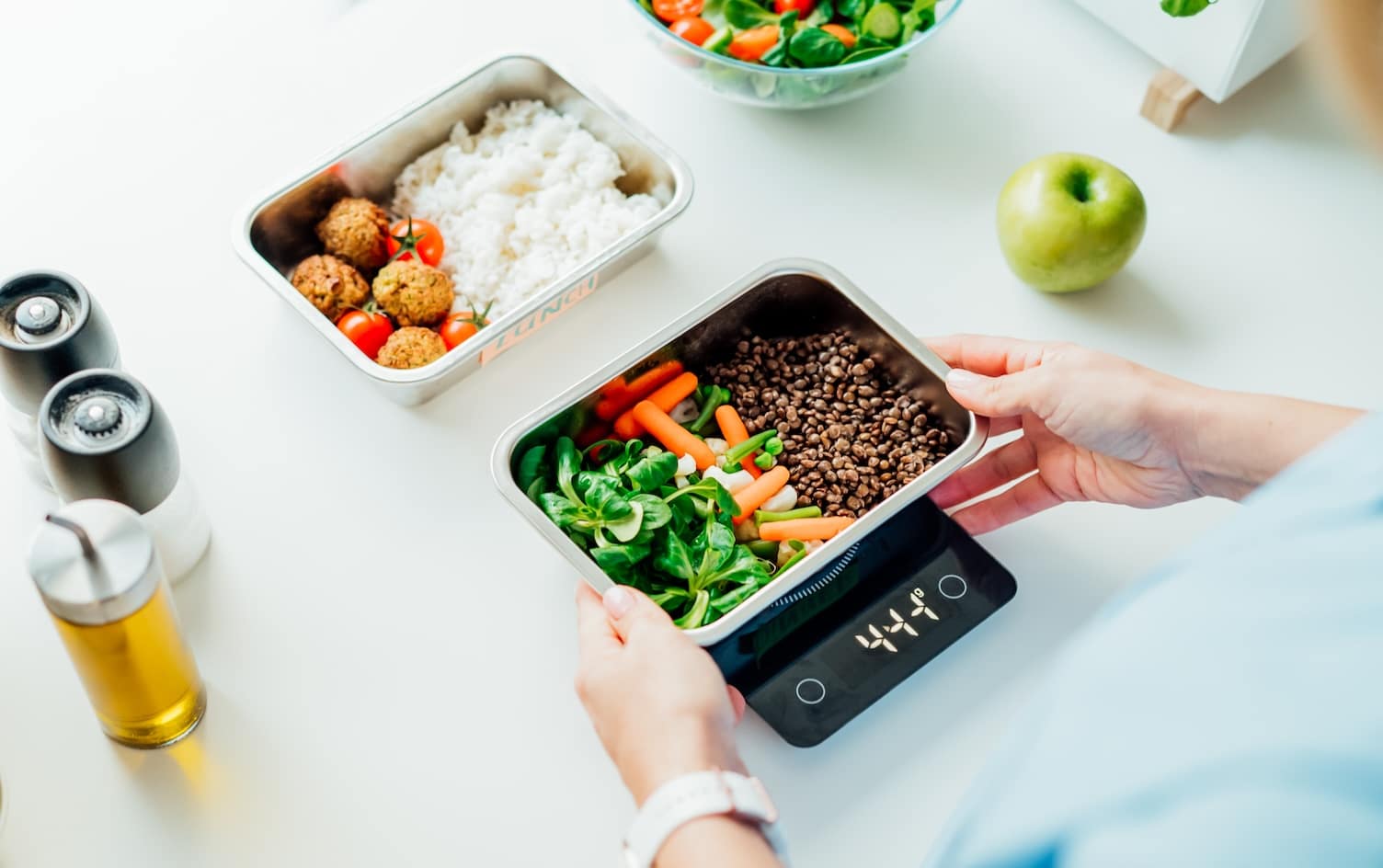Healthy eating efforts can often end up looking like a pendulum swinging from one extreme to the other, passing through the middle ground with staggering force. Oftentimes, deprivation and bingeing happen in a cyclical pattern. Like a pendulum, these absolute behaviors ultimately lead us to overcompensate, with a powerful force that sends us flying off to the other extreme.
If your relationship with food resembles a swinging pendulum — meaning you’ve tried diets that leave you feeling deprived and find yourself overeating, feeling like a total failure and like you have to start all over again — you’re not alone.
Developing a healthy relationship with food is hard, but finding that equilibrium between extremes is a journey worth embarking on. By practicing these eight behaviors, over time you will be able to reset your relationship with food and find that comfortable resting point where you feel at peace and in balance.
- Forget the fads. Going on a fad diet is tempting because you may want the quick and easy results such diets so often promise. You may not realize or account for the reality that although you may lose weight with the fad diet, you will likely suffer consequences as you transition back into normal life. Fad diets can lead the pendulum to swing toward overeating and bingeing and can demolish your relationship with food in the process.
- Look inward. Rather than looking to the next diet to dictate your eating pattern or behavior, starting looking inward for cues of when, how much and what to eat. Let eating be guided by internal cues of hunger and fullness most of the time rather than looking for outward rules or restrictions of what your eating should look like.
- Be gentle and compassionate with yourself. It’s not about perfection; it’s about progress. If you eat a doughnut in the morning and wish you hadn’t, fill the rest of your day with foods that help you feel and function your best. A doughnut (or two) in the beginning of the day should not inevitably lead to an entire package of cookies, bag of chips or a gallon of ice cream. When you catch yourself engaging in all-or-nothing thinking, practice compassion, and hit the reset button instead.
- Reframe setbacks. When (not if) you get offtrack with your healthy eating efforts, try to learn from those setbacks rather than using them as an excuse to give up. The process of developing a healthy relationship with food involves triumphs and tribulations. Looking at every experience as a learning opportunity is so much more productive than wallowing in failure.
- Enjoy your food. If your mind is full of clutter while you eat, try practicing mindfulness. Steer your thoughts away from phrases like, “This is so bad for me!” or “Why am I eating this food?” or “This is going to make me fat!” and just enjoy what is on your plate. Whether you’re eating a kale and quinoa salad or indulging in your favorite ice cream, experience the flavor, smell, feel and taste of the food. Appreciate and enjoy it.
- Live in the present moment. Rather than stressing about what you did yesterday or where you might end up eating in two days from now, focus on where you are right now and the choices you have in front of you today. We are really only in control of this very moment, after all.
- Give yourself unconditional permission to eat. We naturally gravitate toward foods (and things in general) that are forbidden. When we say “no more sugar ever,” what usually ensues is a sugar binge. Ironically, true unconditional permission to eat leads to healthier choices, while restriction tends to lead to bingeing. Adjust your mindset toward a more food-neutral approach, and see how it changes the content of your eating.
- Have gratitude. Rather than getting hung up on the negatives, practice feeling grateful for the things you have and the things that are going well. Learn to appreciate food and to see the good in it. Make an effort to be grateful for the body you have and the health you enjoy. Find ways to acknowledge your gratitude for your food, and consider where it comes from and what it does to enhance your life.
Find ways to bring the pendulum toward equilibrium and rest. Make efforts toward healing your relationship with food by practicing these tips. Find a place where you feel you’re in a comfortable balance between undereating and overeating, and learn to make peace with food in a way that’s right for you. Your body and mind will thank you!




